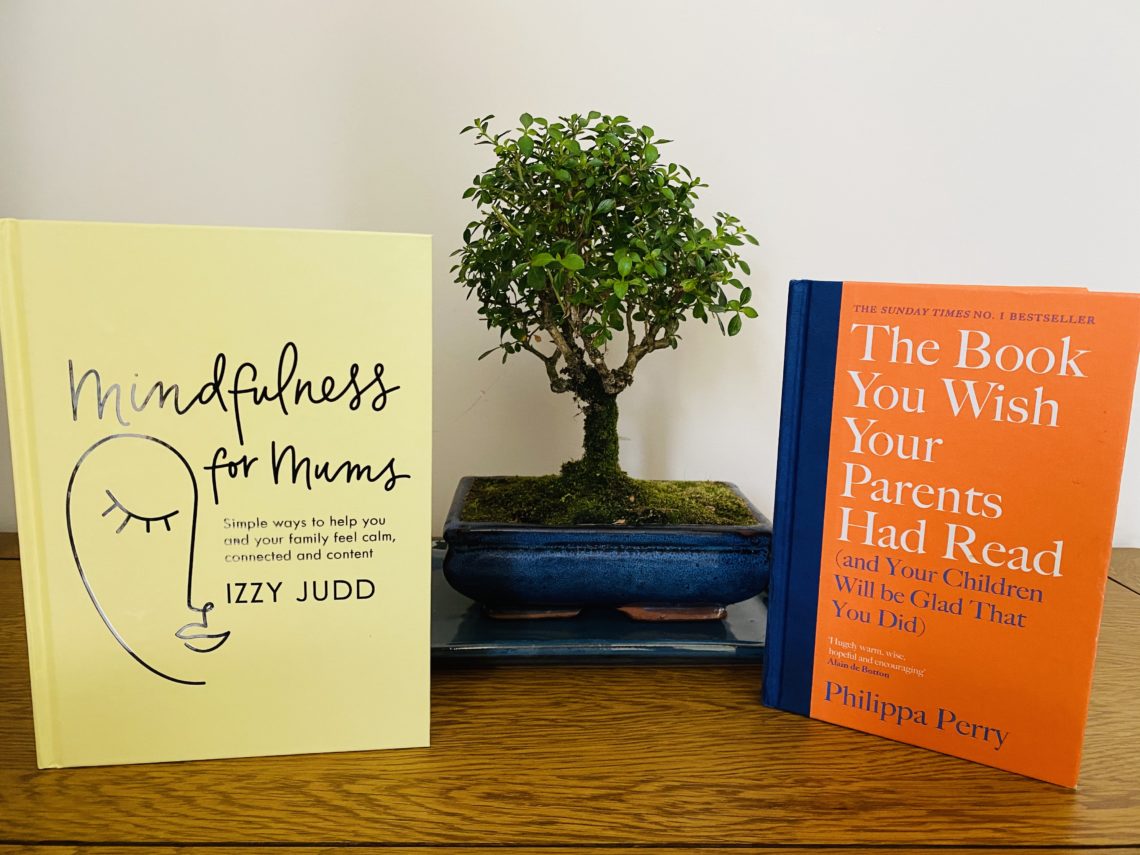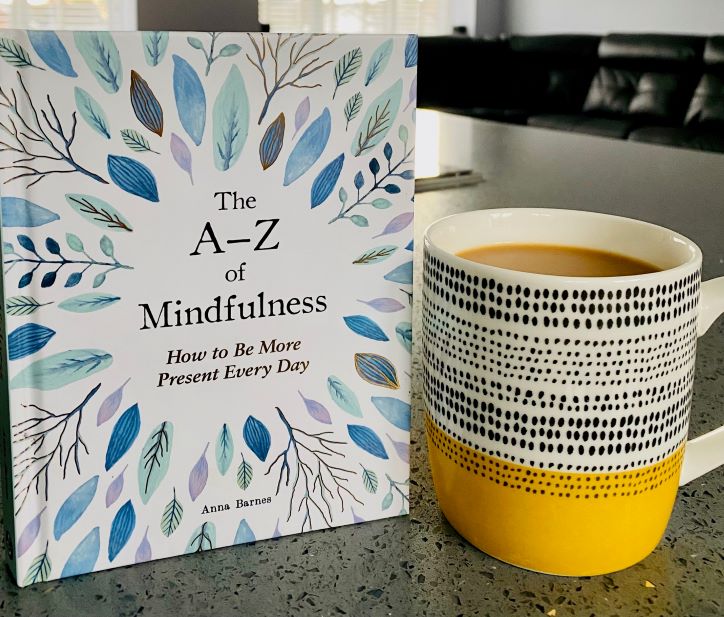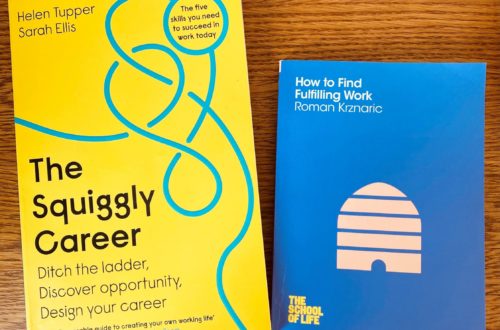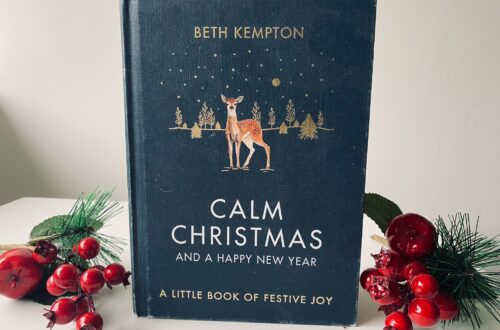
The two parenting books that helped me through lockdown (and beyond!)
Review of Mindfulness for Mums by Izzy Judd and The Book You Wish Your Parents Had Read by Philippa Perry
I have never been much of a fan of parenting books, and after nearly 12 years of being a mum I have managed to steer clear of them, probably owing to some fear that they would confirm I was getting it all wrong and really was as clueless as I felt! Having come to an acceptance over the years that I don’t have to have it all sussed, and that seeking support is absolutely not a sign of weakness or inadequacy, I was curious about what I could learn from parenting books and so Mindfulness for Mums* and The Book You Wish Your Parents Had Read* caught my eye as I was browsing through the bookshop at the Life Lessons Festival in London earlier this year.
*Disclosure: If you buy books linked to my site, I may earn a commission from Bookshop.org, whose fees support independent bookshops.
When lockdown was announced soon after I knew it was going to be a challenging time for my family, cooped up together 24/7, and trying to work, study and play while all under the same roof. As I desperately searched for resources that would help make parenting and home schooling over the lockdown period that little bit smoother, it dawned on me that this was the perfect time to get these books off the shelf and to start exploring all of the parenting wisdom that they had to offer!
Mindfulness for Mums by Izzy Judd (2020, Michael Joseph, 288 pages)
As a mum who suffers with anxiety, I am always on the lookout for new, and easy to implement, relaxation techniques that will add a momentary sense of peace and tranquillity to my day (especially when the children are darting about here and there, bickering or play fighting!) Mindfulness is a practice that reconnects you with the present moment and all your senses, it encourages you to slow down and check-in with yourself, and gets you in the habit of simply observing the thoughts that are rushing through your mind without judgement or the need to engage with them.
During lockdown Mindfulness for Mums became my little book of calm. Its cheery yellow cover greeted me each morning as I sat down to drink my cup of tea, seizing just a few uninterrupted minutes to read through a couple of its pages. Refreshingly, its chapters are short, the exercises are broken down into manageable steps, and Judd’s writing is clear and straight to the point (so this is the perfect read if you are stuck for time!)
The book is bursting full of beautifully simple, mindful exercises that you can practise either on your own or with your child. Some of the exercises are so subtle that you can do them outside of the home while you are out and about on a walk, at work, or feeling flustered in the middle a busy supermarket or shopping centre. The author, Izzy Judd, a classically trained musician and mum of two, shows that mindfulness can be easily incorporated into your life and that, even if things do become a bit chaotic, you can always use mindfulness techniques to recentre and come back to yourself, which I think is a very useful skill to pass on to our children!
The book also includes sections on how to talk to children about their feelings thereby opening up conversations on emotions and facilitating a deeper connection with our little ones. It contains lots of lovely bonding exercises that you can do with your children from putting together you own family music playlist, filling a ‘boredom’ jar full of enjoyable activities, creating a memory book and expressing your true appreciation of each other through regular gratitude practices and acts of kindness.
Importantly, Judd also recognises that family life can bring its tensions and frustrations. She addresses this with helpful strategies that will enable you to handle difficult emotions and take a step back from arguments, to think before you start to utter your next words (ok so that one might take a bit of practise…), and listen attentively to each other’s needs and concerns.
My 3 key takeaways from Mindfulness for Mums:
Mindfulness does not have to take a long time
I used to think that I would need to set aside a huge chunk of time in my day if I wanted to practise mindfulness ‘properly’ but actually that is not the case. Some of the exercises in the book only take a minute or two to carry out and Judd provides plenty of suggestions on how you can create a much welcome pause in your day to find some calm, focus your mind and just ‘be’. She also suggests some wonderfully soothing affirmations in the book that you can recite while you are carrying out the exercises to bring that extra bit of calm and reassurance to your mindfulness practice.
Mindfulness is not just reserved for adults (and it doesn’t even have to be a solitary activity)
Judd includes mindfulness exercises that you can do with your children and shows you how you can get all the family involved. There is guidance on carrying out simple, age appropriate, breathing exercises and visualisations, sharing emotions you have felt in the day, and creating your own comfy and relaxing mindfulness spaces in the home (I now really really want one of these heavenly spaces!)
Me time is not a ‘nice to have’ it is a must have!
We all need time to relax and recharge so we can be at our best for our family and face the challenges that come into our lives. Judd provides self-care activities that are easy to carry out and will help you to form healthier daily habits. Also, by sharing her own mixed feelings and experiences around becoming a parent, Judd reassuringly helps you to feel like it’s not ‘just you’ who needs some time out in the day to recover from the overwhelm, the non-stop merry-go-round of chores, and the sheer tiredness that parenting can bring.
The Book You Wish Your Parents Had Read (and Your Children Will be Glad That You Did) by Philippa Perry (2019, Penguin Life, 256 pages)
In this book, psychotherapist and author, Philippa Perry, asks you to delve deep into your feelings about being a parent and encourages you to look to your own childhood to help you to better understand your parenting style. She asks you to pinpoint the events from your past that may be triggering your reaction to your child in the present moment (this can include the behaviour you were punished for as a child or the criticisms made towards you ,or those around you, that you may have subsequently absorbed).
Gaining that deeper level of self-awareness is an important stepping stone to making changes to the way you parent and, as a result, Perry includes exercises that help you to explore the feelings that you have towards yourself such as noticing your inner critical voice and the judgements you make. In turn, you start to become conscious of the kinds of implicit messages that you may be sending to your children through the words you use and the actions you take.
Perry also turns the focus on to your interactions with your co-parent, stressing the importance of open and respectful communication (whether they live with you or not) and provides some useful pointers to prevent arguments from escalating and to live more harmoniously through listening to your co-parent’s views, owning your feelings, being present and showing gratitude towards each other.
One of the core messages of the book is that you are in a relationship with your child and that this relationship needs to be nurtured carefully. Perry advises that the relationship with your child starts from pregnancy and she provides some lovely exercises on bonding with your unborn child and prompts you to think about the expectations that you have of becoming a parent. She cleverly gets the reader to empathise with being a baby, outlining how they may feel and describing how they form their first impressions of us and their environment. Importantly, Perry also covers how it may feel to be a new mum (covering issues such as loneliness, postnatal depression and comparing oneself against other parents) and suggests a way of establishing a support network that meets your emotional and practical needs.
Perry stresses the humanity of the child, that he/she is not a ‘object to be perfected’ (p.88) or something that is always to be instructed or dictated to, and that to build and maintain a relationship with our children there is much value in spending time with them whether that be through playing, involving them in our daily routines, or making memories together.
Perry advises us to do everything we can to foster openness between ourselves and our children and this also means allowing them to express their opinions and feelings, putting yourself in their shoes, and working through any mistakes that you or your child has made. Perry uses this concept of ‘rupture and repair’ throughout the book, recognising that we all behave in ways that we later come to regret but that ultimately it is never too late to rebuild the relationship with your child. As a parent, you have to look within to get to know yourself, identify and accept the part you played and then work with your child to find out what needs to happen to enable you to get along better.
My 3 key takeaways from The Book You Wish Your Parents Had Read
Our children do what we do (but unfortunately not always what we tell them to do!)
We are truly role models for our children. Have you ever noticed your children emulating the things that you do or the opinions that you express? Perhaps, like me, you even hear your children say or do things that you were barely aware that you do and that they now just seem to have picked up. Perry advises us to think carefully about what we say and do in front of our children and to model the behaviour we want them to exhibit.
Listen, validate and contain
Amid the whirlwind of daily life, it can be all too easy to dismiss or ignore the feelings of our children and try to divert their attention to another activity. However, as Perry rightly points out, we all want to be listened to and have our voices heard. If this does not happen, we can become frustrated and can then act in ways that do not serve us. The same goes for children, and Perry therefore stresses the importance of listening to and observing our children, and being a ‘container’ for their emotions which means being with them as they experience their feelings, expressing empathy and understanding, and showing that we are here for them no matter what.
All behaviour is communication
This phrase has become like a mantra that I now often repeat when my children start playing up! Don’t get me wrong, I still feel the irritation immensely but after reading this book I now look at both of my children when they are pushing the boundaries a little and pause to think about what it is that they are really trying to communicate with me (nine times out of ten they are either a bit bored or they want my attention.)
Stopping to take this more objective stance also helps me to calm down before I respond. I can then start a conversation with them from a position of understanding and, as Perry advises, help them to communicate their needs and process their feelings in a more constructive way (for example, by naming their feelings, identifying triggers, doing some problem solving together, or taking some time out from the situation).
These are the books that I wish I had read just before I had children and certainly while they were babies so I would particularly recommend them to new/expectant parents or those with very young children. What sets these two books apart from other parenting books I have come across in the past? Well, it is the honest look that they take at the emotional side of parenting, acknowledging the psychological impact that raising a child can have on parents (which I believe is a vital issue to get out into the open!) They both offer practical advice and exercises that enable us to discover ourselves again, to recognise our needs and feelings, and build open, loving, and sustainable relationships with our children no matter what age they are.




